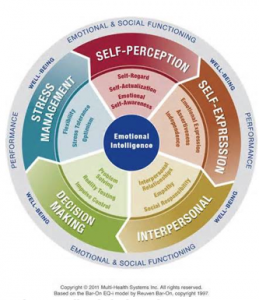To have credibility as an Emotional Intelligence Executive Coach for disruptive behavior, several education, training, certifications, or experience requirements should be considered:
1). Emotional Intelligence (EI) Knowledge: A deep understanding of emotional intelligence is crucial. This includes mastering the five vital elements of EI: self-awareness, self-regulation, motivation, empathy, and social skills, along with assessments and client workbooks.
2). Continuous Improvement of Own EI: Coaches should model the behaviors they ask people to develop, continuously improving their emotional competencies.
3). Coaching Skills: Coaches should have strong coaching skills, including the ability to facilitate self-discovery, handle resistance, and bring a coaching presence to the room.
4). Certifications: Certification in emotional intelligence coaching or related fields can enhance credibility. For example, accredited professionals use the ECI™ 360° feedback instrument, which assesses 18 emotional competencies corresponding with the EI model.
5). Experience in Coaching: Having experience in coaching individuals and teams, particularly in addressing disruptive behaviors, is essential. This experience should include working with clients to develop insights about their leadership strengths and areas for improvement.
6). Knowledge of Coaching Formats: Understanding different coaching formats, such as one-on-one, group coaching, and online coaching, can help coaches tailor their approach to clients’ needs.
7). Understanding of Organizational Dynamics: Coaches should have a solid understanding of organizational dynamics and how EI can impact an organization’s success. This includes recognizing the link between a company’s success and the emotional intelligence of its leaders.
8). Adaptability: Coaches should be able to adapt their approach to clients’ unique needs, learning styles, and personalities. This includes handling any emotional state that may arise during coaching sessions.
9). The physician or executive’s employer frequently recommends executive coaching and pays for this intervention. Therefore, corporations such as Medical Schools, Hospitals, and Executive HR are far more likely to pay for coaching provided by licensed mental health professionals rather than Life or business-trained coaching based on the need to rule in or out the need for psychiatric evaluation or treatment.
Professional Development
Coaches should continuously engage in professional development to stay current on best practices and research related to emotional intelligence and coaching. By meeting these requirements, coaches can establish credibility and effectively address disruptive behaviors related to emotional intelligence



